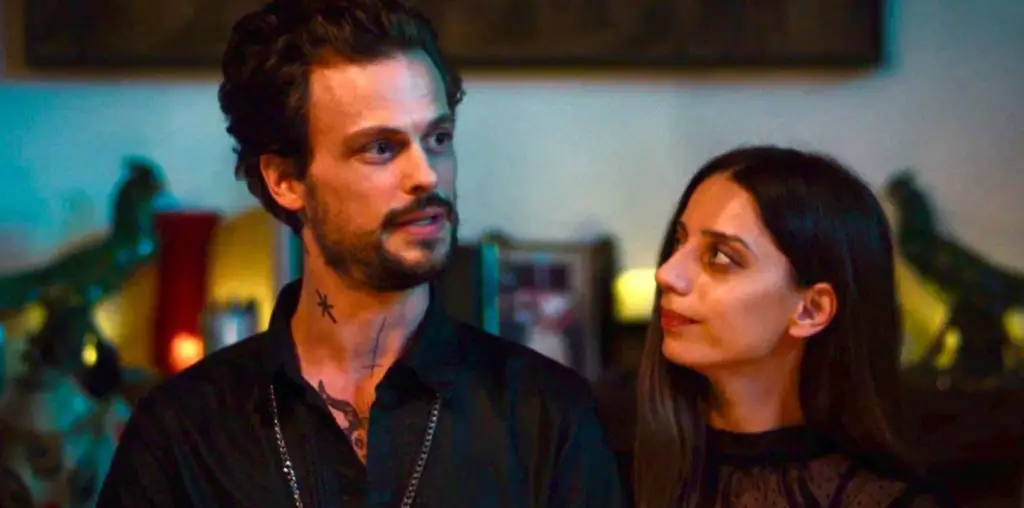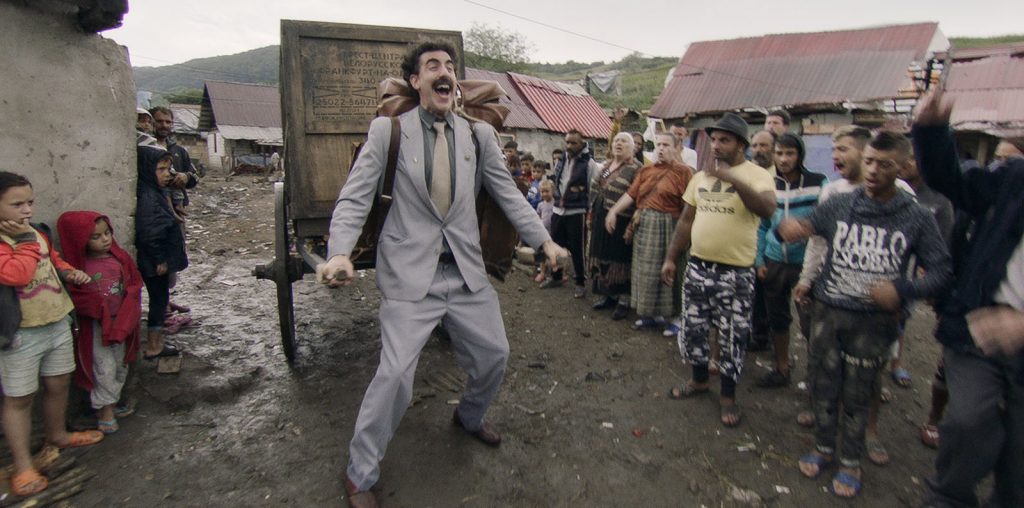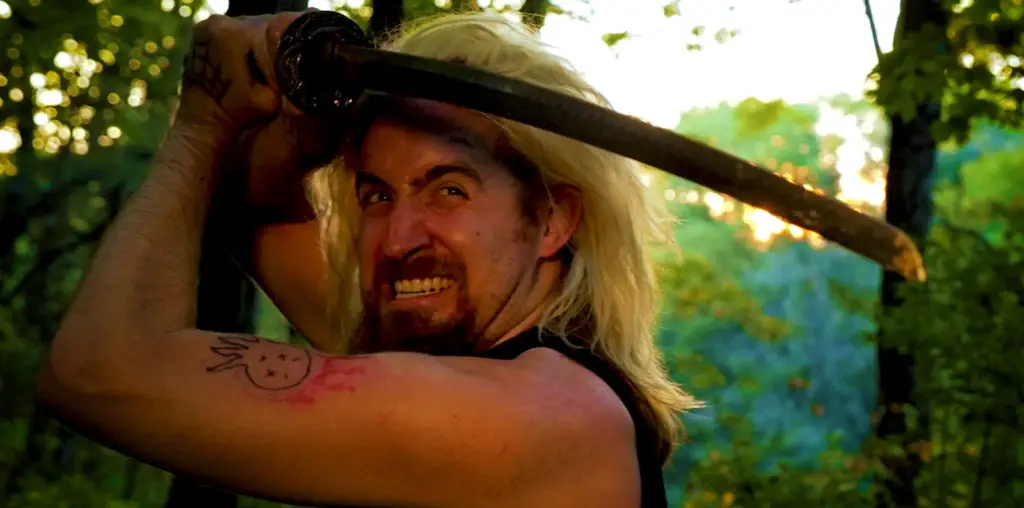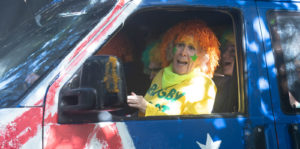
Based on the Catherine Tate’s Nan specials, The Nan Movie seems to have arrived seven years too late. Scratch that – this atrocious display of cinematic garbage should have never seen the light of day at all. Crass, painfully unfunny, featuring perhaps the single worst performance of the year, it looks like it’s been re-edited a hundred times in a desperate attempt to appease the widest audience possible. I’ll be damned if this appeases anyone. No wonder director Josie Rourke refused to have her name associated with the project.
Not that the show was any good in the first place. No one asked for an extended version of Tate mugging about, spouting screechy vulgarities and inconsequential barbs. The plot, which involves Tate’s Nan taking her grandson Jamie (a blank Mathew Home) on a trip to Ireland so that she can reconcile with her dying sister Nell (Katherine Parkinson, another show mainstay), is mostly a mere excuse for said antics. Apparently, Rourke initially set the majority of the plot in the 1940s, but some execs had issues with the WWII setting and hastily and cheaply recut the film to mostly take place in the present day. The strain shows.
“When you grow up,” newborn baby Nan is promised by her parents in the prologue, “you’ll be the greatest woman this world has ever seen.” Cue a punk-rock credit sequence, with Tate’s screechy giggle shattering eardrums – all less than two minutes into the film. On their journey, she and Jamie encounter old acquaintances and enemies; Nan pees into Tupperware; they consume drugs at an EDM club; a chicken coop explodes; they pick up a rugby team; it all ends on an utterly unearned quasi-emotional note.
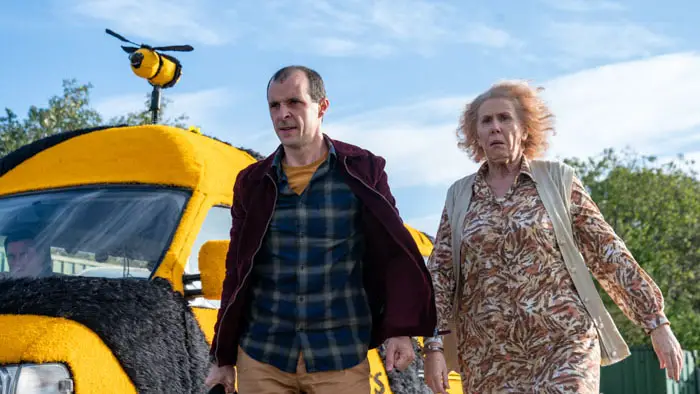
“…Nan taking her grandson Jamie on a trip to Ireland so that she can reconcile with her dying sister…”
The adventures depicted in The Nan Movie are punctured by flashbacks to the titular character’s younger days, her romantic involvements, sisterly resentments, and off-putting animated interludes. All of these are a clear sign of post-production tinkering and re-tinkering. The resulting tonal whiplash is bound to induce headaches. The transition of Nan from a somewhat believable (albeit unlikeable) young woman in the past to the current caricature never coheres.
Worst of all, not a single moment throughout the entire narrative inspires so much as a smile. There’s no real humor on display – just Nan doing weird, eccentric things. “You can’t say ‘leprechauns’ no more,” she states at one point, possibly the closest the film approaches to telling an actual joke. “Nowadays, you just say “Irish’.” Tate commits to the role fully, but to what effect? To portray an obnoxious character with next-to-no redeeming qualities and a laugh so shrill it may shatter screens? It’s like fully committing to embodying an ambulance siren.
As jarring as the flashbacks are, they at least boast an impressive production design and a modicum of character investment, courtesy of, I assume, the uncredited director. She even touches upon racial tension, sexual repression, and post-war trauma. But to what effect? What’s the point of it all? What does The Nan Movie want the audience to feel since it’s clearly not laughter? All that ends up lingering post-credits is slight trepidation, a faint feeling of despair for humanity.
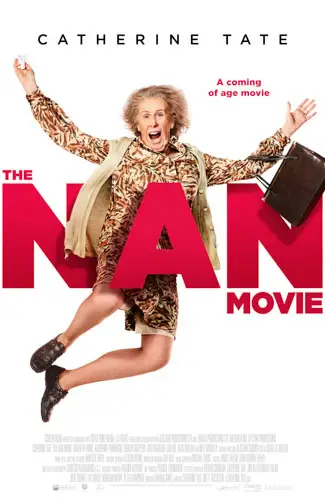
"…Tate commits to the role fully..."
